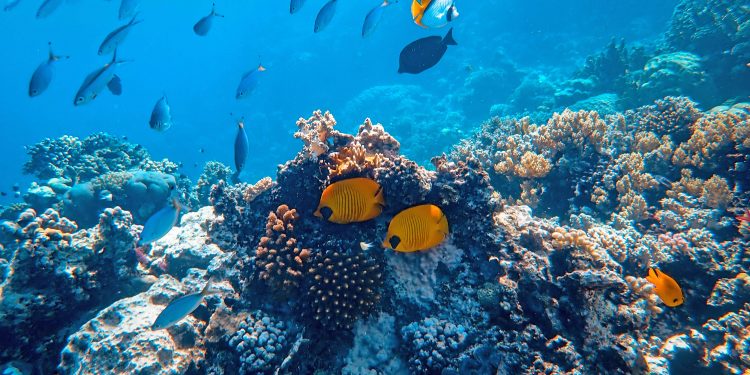Towards implementation of OECMs in the Marine Capture Fishery Sector
The Food and Agriculture Organization (FAO) published the Report of the Expert Meeting on Other Effective Area-Based Conservation Measures (OECMs) in the Marine Capture Fishery Sector held in Rome, 7-10 May 2019. The meeting, which aimed to catalyze and consolidate expert advice on the identification and establishment of OECMs in the marine capture fishery sector, was organized by FAO, the Fisheries Expert Group of the IUCN Commission on Ecosystem Management (IUCN-CEM-FEG), and the European Bureau for Conservation and Development (EBCD), with the collaboration of the Secretariat of the Convention on Biological Diversity (CBD).
The report summarizes the wide range of views emerged during the Expert Meeting and represents an important knowledge base towards the consolidated guidelines for the marine capture fishery sector on the operationalization of the 2018 OECM definition and criteria. Building on CBD Decision 14/8, containing general guidance for OECMs, and a Background Document jointly prepared by FAO and IUCN-CEM-FEG, the FAO Report on the Expert Meeting outlines further considerations on (1) OECMs identification, (2) Monitoring, Evaluating, and Reporting of OECMs, and (3) Revision of OECMs and selected governance issues. On these regards, the perspectives pointed out in the report and expressed during the Meeting by a broad range of experts from the fisheries management and biodiversity conservation communities, will accelerate the process towards the production of guidelines and implementation of OECMs in the marine capture fishery sector.
IUCN-CEM-FEG has been involved in the OECM process since 2016, producing background documents on the issue (see here and here) at the request of the CBD Secretariat, co-organizing expert meetings, and monitoring developments on OECMs in all relevant fora, including CBD, BBNJ, IUCN, UN Ocean Conference and Our Ocean Conference. Lately, a workshop organized by FAO, CBD, and IUCN-CEM-FEG at the Our Ocean Conference in Oslo, 23-24 October 2019, highlighted the finding of the meeting in Rome, and advanced the discussion on future steps in the process, stressing also the strong scientific evidence that partially protected areas (fisheries closures) can indeed confer significant conservation benefits.
OECMs established by the fishery sector have the potential to increase biodiversity conservation while providing the sector with an invaluable opportunity to improve their reputation as proactive, responsible actors in the reduction of fisheries collateral impact on biodiversity, contributing to the achievement of SDG 14, Aichi Target 11 and to the post-2020 biodiversity framework currently under negotiation. In support of the Code of Conduct for Responsible Fisheries, FAO is considering a process to produce Technical Guidelines on the use of OECMs in the marine capture fishery sector, involving the FAO Committee on Fisheries (COFI). IUCN-CEM-FEG will seek to contribute to the process.



